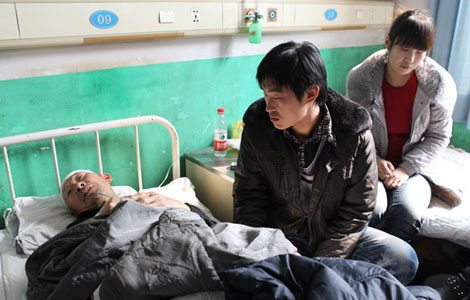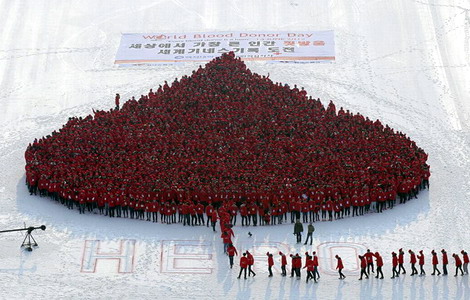Shanghai debuts system to aid child beggars
Updated: 2012-03-01 07:56
By Zhou Wenting (China Daily)
|
|||||||||||
SHANGHAI - A system to take homeless children off the streets and return them to their home communities is to be set up this year by city authorities.
"We will improve communication with the civil administrations where these children come from, invite them to take back the kids and provide assistance to send them home," said Ren Zhiyue, director of the social welfare division of Shanghai civil affairs bureau, on Wednesday.
This is Shanghai's latest attempt to deal with child beggars following another initiative in December. Eight government agencies, including civil affairs, public security and city management, are taking part in the campaign, which aims to have the streets clear of child beggars by the end of this year.
Officials said the police will increase patrols in areas where the homeless gather, such as metro stations, squares, bridges and underground passages.
Vagrant children are particularly prominent in the city. Some residents said they often see young boys and girls kneeling under flyovers, many with schoolbags on their backs, or asking money from car drivers when they stop at traffic lights.
Metro station manager at the People's Square, surnamed Fei, said that at least a dozen homeless children a week were caught begging on the subway.
Fei said subway workers informed colleagues at other stations when child beggars were reported on trains, but added that it was hard to enforce the law.
"It's easy for them to hide in the crowd. Even if we find them, we feel pressure from passengers if the child cries, screams and rolls on the ground," Fei said.
According to an officer surnamed Qiu at the People's Square police station, if a homeless child is found alone, they will confirm his or her identity first, and try to get in touch with the legal guardians.
If children cannot give details of their background, blood samples will be taken and the information in a DNA database will be used to help trace their families.
The national database, set up in April 2009, had reunited more than 1,400 children with their parents by September.
Qiu said the city's new policy on child beggars should be the most effective yet.
"We could only persuade them to stop begging before, but now we can repatriate the child with this policy," he said.
Zhang Baoyan, founder of Baobeihuijia (Baby Back Home), a volunteer group that helps search for missing children nationwide and offers support to their parents, said the campaign shows that the government is determined to put an end to children begging. But she wonders how to prevent the children becoming homeless again.
"Many homeless children keep reappearing not long after leaving welfare homes, because begging has become their livelihood," she said.
The central authority began a campaign to help homeless children in December. It requires the local government in the original home communities of vagrant children to increase social security and economic support to prevent children from turning to begging.
"So the campaign addresses both the symptoms and root causes. We hope child begging will vanish when the rich-poor divide is gradually narrowed," said Zhou Zheng, chairman of the social assistance center in Shanghai.
- China adopts new rules to combat pollution
- Charities open to religious groups
- Japan told to stop unilateral surveys
- DPRK to suspend nuclear activities
- China urges Japan to stop East China Sea research
- Chinese woman shot dead in Pakistan
- Monitoring of PM2.5 to be extended
- 17 Killed in N China factory blast
Hot Topics
Wu Ying, iPad, Jeremy Lin, Valentine's Day, Real Name, Whitney Houston, Syria,Iranian issue, Sanyan tourism, Giving birth in Hong Kong, Cadmium spill, housing policy
Editor's Picks

|

|

|

|

|

|







